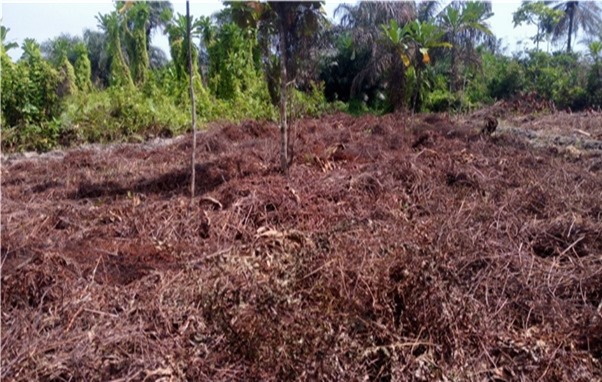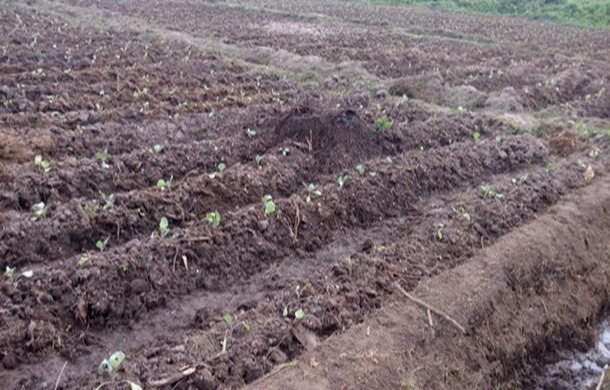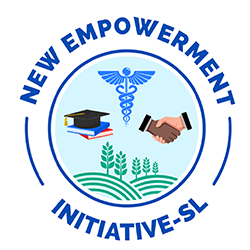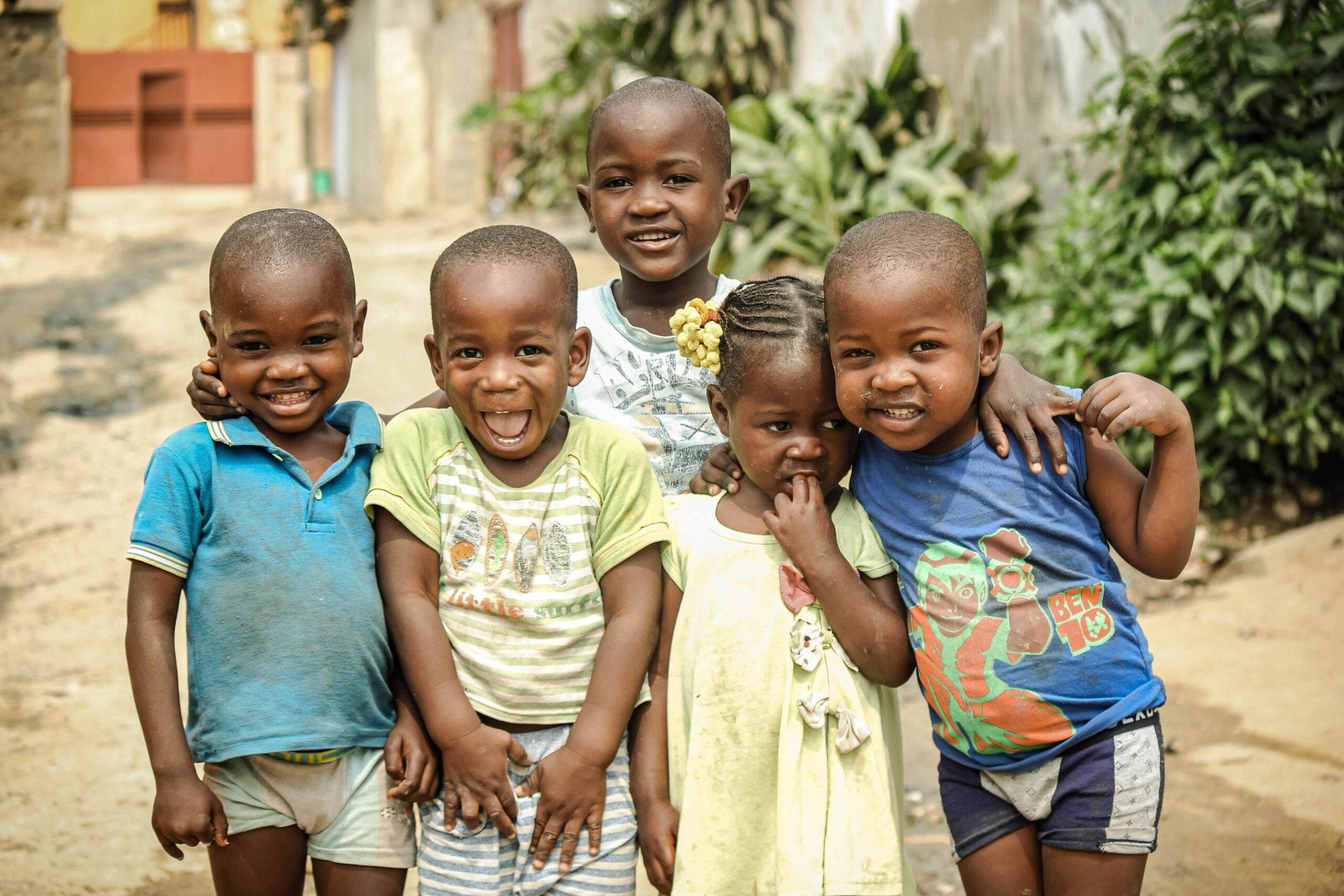INITIAL ACTIVITIES AND PROGRESS
NEI-SL
AGRICULTURAL DEVELOPMENT PROGRAMS
MEET NEW EMPOWERMENT INITIATIVE-SIERRA LEONE
The New Empowerment Initiative-Sierra Leone is a youth-led non-profit founded in 2022 and registered with the Government of Sierra Leone by concerned indigenes that are directly affected by the problems to solve. The organization comprises of project managers, social engineers and development adepts; and its works to ensure improved:
i. Basic education system.
ii. Commercial agriculture and diversified food production farming and gardening.
iii. Social and economic conditions of marginalized women and youth cost-effective projects.
iv. Poverty alleviation through small business holders’ commercialization programs.
v. Clean water and sanitation.
vi. Health coverage.
NEI-SL’S PROJECT RATIONALE
On to this moment, nearly two million people are ravaged by poverty endemic than Covid-19 in Sierra Leone, West Africa. You find majority of these people in the rural communities of the country; and the society is one of the most lamentable communities of the Global South, where among many other underdevelopment problems, you discover poor educational system with thousands of school-age children who have zero access to schooling; hunger and poverty endemic plaguing almost everyone; bad roads that cannot be easily rehabilitated; poor health coverage everywhere; ridiculous power and energy system; high population of street children and marginalized women and girls, high crime rate and drug abuse among youths; underserved youths; physically challenged and housebound poor; alarming population of commercial sex workers; child marriage; fashionable rape and teenage pregnancy; dilapidated dwellings in both urban and rural communities infested by rats, cockroaches, mosquitoes and fleas of all nations that have the potentials to cause epidemic of terminal diseases. We discovered these problems to address during the conducts of the Field Visit Research and Needs Assessment Surveys together with the earnest need of solution projects, and It is against this background the New Empowerment Initiative-SL was founded by us to address the ,mentioned problems and improve the lives of our project clientele.
NEI-SL AND THE POTENTIAL DONOR
Indeed most donors have reservation to give grant to certain organizations because they fear that the grantee may not use their grant wisely and economically, and as such the return may not reflect the investment. But in the case of NEI-SL, the return of every donor fund given will reflect the investment for certain. In that, any fund given to NEI-SL, will be used as directed by NEI-SL workers with the expertise in financial management. These experts will determine, draw, and direct the use of the donor funds given to NEI-SL for program or project implementation; and they are the same experts to help oversee the use of the fund as directed.
NEI-SL’S KNOWLEDGE AND EXPERTISE
We deploy our knowledge and expertise within a wide range of self-help development strategies, in which we have the role of community partners that support our self-help development programs with local contributions and supply of labor. All our projects are self-help, which improve our move to succeed our realistic; and our operational income is generated through executive membership contributions and local contributions by our Community Participation Committees. Project incomes cover the costs of operation, including our overhead. Where possible a modest margin is included in the project to be able to either cross-subsidize other projects or to invest in research and development of innovative services. As a project organization, our incomes and expenditures are registered under a different project with manpower being the main component of the costs. Besides, we solicit matching funds from international donor and developmentally oriented organizations including charities for 40% of our project workings. The 60% normally comes from what we provides to augment the values of local contributions by community participation committees that are directly affected by the identical problem which we intends to address and they are therefore always readily available to ensure successful project implementation and success in their communities.
ITS INSTITUTIONAL CAPACITY AND HOW IT OPERATES
Our team is a kind of Agile-project-management-team with a value-driven approach that allows project managers to deliver high-priority, high-quality work and look like rock stars to their stakeholders and direct beneficiaries. The team comprises of key stakeholders, people in leadership, service delivery staff and volunteers. We transparently keep our target audience about project status through the most appreciable media available. Besides, we have an excellent leadership rule which involves giving the freedom to all team members to actively participate in discussions that will ensure the success of the project. We do this in order to get the view of some member that may have input that will be the best course of action in a situation, or may be the risk mitigation strategy that is needed to keep the project on vector. In addition, we make project planning and execution more efficient, forge a united project team, and deliver exceptional benefits to the client; and team members are conditioned to always document expenditures for us to avoid illegal claims of money from the donor fund.
We have a track-record of delivering consistent results of any project we implement through our expertise. At our project site, we make voluntary efforts to bring the very people directly affected by the problems to address in order to above all further share their concerns and turn their priorities into policies and actions by our intervention. Interestingly, we are indigenous citizens who are acquainted with the local traditions of our communities; and understand the locals and know how best to solve their problems. We are conditioned to work in difficult and diverse settings, and we highly regard the dynastic chieftainship by which these communities are governed. Besides we believe in diversity and have no phobia about people coming from any part of the world to stay in good faith and help to develop our country; this is why we strongly advocate a tougher vision of non-tribal and no xenophobic resource management system that is totally devoid of structural violence and selective justice among members and project clientele.
We have one ensemble with one focus to conducted community needs and environmental impact assessment surveys. In this regard, all data and information used in the reports of these surveys are based on actual study and accumulated data by us. Accountabilities on the contents and the entirety of the said reports concerning each county are jointly the responsibilities of the stakeholder-ensemble of the county as project proponent and the NEI-SL as the Assessment Consultant & Lead Organization.
MEET NEW EMPOWERMENT INITIATIVE-SIERRA LEONE
The New Empowerment Initiative-Sierra Leone is a youth-led non-profit founded in 2022 and registered with the Government of Sierra Leone by concerned indigenes that are directly affected by the problems to solve. The organization comprises of project managers, social engineers and development adepts; and its works to ensure improved:
i. Basic education system;
ii. Commercial agriculture and diversified food production farming and gardening;
iii. Social and economic conditions of marginalized women and youth cost-effective projects;
iv. Poverty alleviation through small business holders’ commercialization programs;
v. Clean water and sanitation;
vi. Health coverage;
NEI-SL’S PROJECT RATIONALE
On to this moment, nearly two million people are ravaged by poverty endemic than Covid-19 in Sierra Leone, West Africa. You find majority of these people in the rural communities of the country; and the society is one of the most lamentable communities of the Global South, where among many other underdevelopment problems, you discover poor educational system with thousands of school-age children who have zero access to schooling; hunger and poverty endemic plaguing almost everyone; bad roads that cannot be easily rehabilitated; poor health coverage everywhere; ridiculous power and energy system; high population of street children and marginalized women and girls, high crime rate and drug abuse among youths; underserved youths; physically challenged and housebound poor; alarming population of commercial sex workers; child marriage; fashionable rape and teenage pregnancy; dilapidated dwellings in both urban and rural communities infested by rats, cockroaches, mosquitoes and fleas of all nations that have the potentials to cause epidemic of terminal diseases. We discovered these problems to address during the conducts of the Field Visit Research and Needs Assessment Surveys together with the earnest need of solution projects, and It is against this background the New Empowerment Initiative-SL was founded by us to address the ,mentioned problems and improve the lives of our project clientele.
NEI-SL AND THE POTENTIAL DONOR
Indeed most donors have reservation to give grant to certain organizations because they fear that the grantee may not use their grant wisely and economically, and as such the return may not reflect the investment. But in the case of NEI-SL, the return of every donor fund given will reflect the investment for certain. In that, any fund given to NEI-SL, will be used as directed by NEI-SL workers with the expertise in financial management. These experts will determine, draw, and direct the use of the donor funds given to NEI-SL for program or project implementation; and they are the same experts to help oversee the use of the fund as directed.
NEI-SL’S KNOWLEDGE AND EXPERTISE
We deploy our knowledge and expertise within a wide range of self-help development strategies, in which we have the role of community partners that support our self-help development programs with local contributions and supply of labor. All our projects are self-help, which improve our move to succeed our realistic; and our operational income is generated through executive membership contributions and local contributions by our Community Participation Committees. Project incomes cover the costs of operation, including our overhead. Where possible a modest margin is included in the project to be able to either cross-subsidize other projects or to invest in research and development of innovative services. As a project organization, our incomes and expenditures are registered under a different project with manpower being the main component of the costs. Besides, we solicit matching funds from international donor and developmentally oriented organizations including charities for 40% of our project workings. The 60% normally comes from what we provides to augment the values of local contributions by community participation committees that are directly affected by the identical problem which we intends to address and they are therefore always readily available to ensure successful project implementation and success in their communities.
ITS INSTITUTIONAL CAPACITY AND HOW IT OPERATES
Our team is a kind of Agile-project-management-team with a value-driven approach that allows project managers to deliver high-priority, high-quality work and look like rock stars to their stakeholders and direct beneficiaries. The team comprises of key stakeholders, people in leadership, service delivery staff and volunteers. We transparently keep our target audience about project status through the most appreciable media available. Besides, we have an excellent leadership rule which involves giving the freedom to all team members to actively participate in discussions that will ensure the success of the project. We do this in order to get the view of some member that may have input that will be the best course of action in a situation, or may be the risk mitigation strategy that is needed to keep the project on vector. In addition, we make project planning and execution more efficient, forge a united project team, and deliver exceptional benefits to the client; and team members are conditioned to always document expenditures for us to avoid illegal claims of money from the donor fund.
We have a track-record of delivering consistent results of any project we implement through our expertise. At our project site, we make voluntary efforts to bring the very people directly affected by the problems to address in order to above all further share their concerns and turn their priorities into policies and actions by our intervention. Interestingly, we are indigenous citizens who are acquainted with the local traditions of our communities; and understand the locals and know how best to solve their problems. We are conditioned to work in difficult and diverse settings, and we highly regard the dynastic chieftainship by which these communities are governed. Besides we believe in diversity and have no phobia about people coming from any part of the world to stay in good faith and help to develop our country; this is why we strongly advocate a tougher vision of non-tribal and no xenophobic resource management system that is totally devoid of structural violence and selective justice among members and project clientele.
We have one ensemble with one focus to conducted community needs and environmental impact assessment surveys. In this regard, all data and information used in the reports of these surveys are based on actual study and accumulated data by us. Accountabilities on the contents and the entirety of the said reports concerning each county are jointly the responsibilities of the stakeholder-ensemble of the county as project proponent and the NEI-SL as the Assessment Consultant & Lead Organization.
ACHIEVEMENTS
RECENT ACHIEVEMENTS IN AGRICULTURAL
PROGRAMS
Since we formed NEI-SL in 2022, we have used, as we are still using the organization’s income to assist the rural poor majority in Sierra Leone. We conduct field-visit-research and needs assessment surveys before we compose the community people into self-help development groups of 120 participants to a group, and involve them in either cost-effective or self-help development projects. For instance, we empower the rural poor farmers and engage them in self-help diversified food production farming and gardening, that will in-turn bring them enough food and reliable income, so that they will be able to finally stop the daily struggles which they face to get their basic human needs.
Locals in the rural communities here are plagued by hunger and no income among other problems. They unfortunately depend on subsistence rice farming, local charcoal production for fuel, sawing of trees into board and plank as sources of income generation. They have vast rural landscape fertile to boast food production on a very large scale but unfortunately, they work in manual and primitive agriculture that always bring reduced yields on both upland and inland valley swamp (IVS)farming. So they nevertheless suffer from hunger and abject poverty. Mechanized farming system is yet foreign to these locals; they have no reliable supply of modern agricultural tools, viable and high yielding seeds and agro technician training. So what we usually do is to train them on the use of modern agricultural tools like tractor-plough, pressure sprayer, power-tiller, rice milling machines etcetera. We also taught them some innovative farming techniques; viable and high yielding seeds, post-harvest loss and safe handling of agro-chemicals.
We don’t have the required financial capacity to engage them into mechanized farming system, this is why we look for credible international donor organization to partner with and do what matters most in agriculture and community development activities. The required efforts which NEI-SL has made, and still making to improve the work in agriculture, are shown in the pictures below:


Farmers on one of the largest primitive rice farming sites active in secondary cultivation, but how to get seed rice and food for work to facilitate farm work is still a puzzle-quiz in their hunger ravaged community. All of them depend on NEI-SL to provide such help.


NEI-SL engages this group of youth in physically tilling the land to generate income, but the youth nevertheless lament that ‘man-tiller’ and ‘power-tiller’ are not the same tillers in farming; the locals need tractor plough and power –tillers to ensure project participants’ health security in the work of large scale IVS farming.


The locals say that the Ministry of Agriculture and Forestry proves nothing and makes no difference to them, so NEI-SL was called here to engage youth to implement low-land vegetation project that will inurn bring participants reliable income; the organization therefore seeks donor empowerment to make a remarkable difference.


Primitive cassava farming reigns here as life-saver, because it is seen the only simple work in commercial agriculture that can be easily done where farmers lack donor or government assistance to do farming.

Mr. Mammy Mbawah (left) in the black and red T-shirt and two others; together with women in their fight to beat down farming seasonality with locally made Kodali hoes. Their appearance shows strong and determined rice and peanut farmers in the ugly face of abject poverty.

Pictures number one and two above: are the view of traditional chemistry of local charcoal industry capable of intensifying tormenting change in global temperature. They also signify that a vast fertile land of the country with no finance to correctly utilize it, kids there grow up to learn that the best source of income generation in any rural poor community is local charcoal production and sales. NEI-SL has come to stop this traditional means of income generation, and introduce simple income generation techniques that will ensure their togetherness and in turn bring these locals sustainable income and help to prevent global warming.


Rural poor school-age-children in charcoal production because they have zero access to schooling; NEI-SL concern is the fate of this community in the near future if these kids grown up into illiterate adults. The proposed sites of the NEI-SL experimental farm, where farm demonstrators are taught to show what matters most in diversified crop production gardening and farming.

NEI-SL used the require man-power capacity to brush this swamp-forest in order to develop it for insistent IVS rice farming that would boost swamp rice production on a very large scale.

The above shows how crops grow here on up- land during dry season without the application of fertilizers.

The above 6-acre cabbage farm could make Bumpeh town cabbage reach every cabbage market, if the cabbage farmers are assisted with the required cabbage farming equipment and basic incentives which any humane-centered donor would volunteer to give.

The view shows one of the historic sites of where high quantity of commercial agriculture proceeds had their gay-days exhibition in Bandajuma Sowa Community in the Pujehun District during normal times; but NEI-SL has to carry out major market-site reconstruction here to ensure that those days are not yet gone, and are not about to go.
FARMING SEASONALITY
The international donor or farmer investor should know that Sierra Leone has very vast areas of both natural and secondary vegetation including swamp land; the country also has two seasons: Dry Season and Rainy Season respectively. The dry season begins from November and ends in April, while the rainy season begins in May and ends in October every year. So the farmer investor is expected to start his/her farm project at the beginning of the dry season to ensure successful farming proceeds.
HOW TO JOIN NEW EMPOWERMENT
INITIATIVE-SIERRA LEONE
The constitution of the organization has a proviso that gives the right to join NEI-SL either as a foundation executive member, or Co-opted Member, or Affiliate Member or Honorary Member. The status of each of the above membership is clearly stated in the Constitution of the organization.
Besides, when it comes to implement any project, the conditions to be met are also stated. For instance, in the case of the community owned development project, there is no stiff feudal land system in this community, and the freedom to use the land to improve the cultural, social and economic conditions of the community is juristic by the state. It is only in the case of mining things like diamond or gold the indigenes are required by law to obtain license from the Government. Foreign farmer investors also are required by law to either lease or purchase the land for their investment work in agriculture. Besides this state’s ambit of feudal land system, any number of indigenes can make any acres of farm without facing any question from any authority as to the use of the land. So NEI-SL plans to address the problems which the Buma-Samie and Ngeyawami Communities and residents in other rural poor communities are facing by the simple method of long term investment farming project

